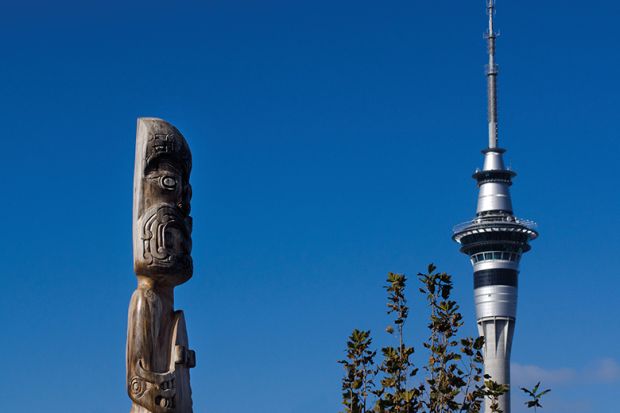Two New Zealand professors have quit the country’s learned academy in the latest fallout from a divisive debate over the “parity” of indigenous knowledge and science.
Philosopher Robert Nola and medical scientist Garth Cooper resigned from the Royal Society of New Zealand (RSNZ) less than a week after it had dropped proceedings against them for co-authoring a controversial letter in The New Zealand Listener last July.
The letter criticised plans to incorporate mātauranga Māori – Māori knowledge – into the school science curriculum and teach teenagers that science had been enlisted “as a rationale for colonisation of Māori”.
It drew passionate responses on both sides of a debate over the relationship between indigenous knowledge and science. Five letters to the RSNZ complained that the authors had breached its Code of Professional Standards and Ethics and demanded “repercussions” including “revoking the membership” of the authors.
After months of consideration, an investigation panel convened by the RSNZ ruled that the complaints did not warrant further scrutiny. It found that the matter was “not amenable to resolution” because it would have required evaluation of “contentious expert opinion or of contested scientific evidence”.
Professor Nola said this should have been obvious from the outset. He said that instead of supporting a robust discussion of the letter’s claims, the society had avoided this by “retreating behind its code”.
“Dogmatic stance seems to be in the ascendancy for the Royal Society, and it is supported by…a code of ethics which can be used all too easily to curtail free speech. A resignation can be a sharp reminder that it ought to provide a better forum for the discussion of contentious views instead of condemning them on websites or having panel investigations into them,” Professor Nola told Times Higher Education.
Professor Cooper said his grievance was with the RSNZ leadership, not fellow members. He said he had resigned over the leadership’s “loss of understanding of its raison d’être” through its “suppression of free speech”, “failure to properly support science” and “untoward political focus”.
Professor Cooper, who has Māori heritage, has devoted much of his career to Māori health and science education. He has designed and delivered programmes in hospitals, universities and Māori meeting grounds, and served on the Māori Committee of the Health Research Council of New Zealand. His research focuses on diabetes, a major Māori health issue.
He said he had grown alarmed at the “recent profound undermining of the meaning of science in New Zealand” and suggestions that teaching literacy to Māori children was an act of colonisation. Such views were “fundamentally antithetical to educational achievement and opportunity”.
“Real bias stems from the view that Māori can’t do things or participate fully in society because they’re Māori. The partial substitution of mātauranga Maori for international-format science education, perhaps unintendedly, is implying that limitation.”
The RSNZ has consistently declined THE’s requests for comment. But soon after the Listener letter’s publication, the society’s president and academy executive committee chair denounced the authors in a statement on its website.
Professor Nola said that the “obnoxious” statement had remained on the website for months and spurred his decision to resign. He said “perhaps a majority” of the RSNZ leadership had become captured by a political agenda that subverted its commitment to freedom of expression.
In December, the website statement was replaced by a message from chief executive Paul Atkins, who had joined the society several weeks earlier. He said that he wanted to “get the current discussion back onto a helpful and constructive basis” and expressed a commitment to science and free speech.




